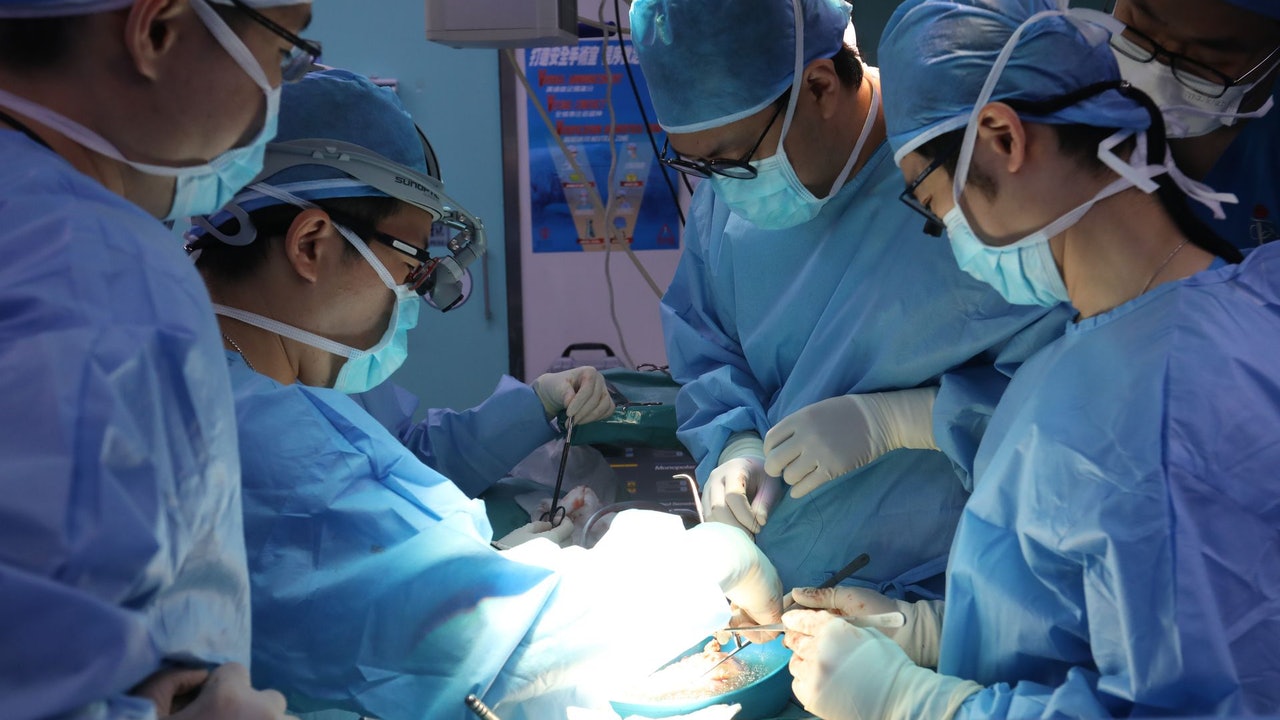Many patients suffer from nausea, vomiting and discomfort after the operation, and even vomit up yellow bile water, which is more difficult than the pain of the wound.
Thirty percent of patients will suffer from nausea and vomiting after surgery. Children, women, non-smokers, seasick, motion sickness, gynecological and gallbladder surgery, etc., and require higher doses of morphine pain relievers, have an 80% chance of this side effect.
Doctors can adjust the type and dosage of anesthetics, such as reducing the dose of morphine or using antiemetics for chemotherapy, to reduce nausea and vomiting after surgery.
Written by: Li Bilian, a medical consultant and anesthesiologist
Back then, I had a caesarean section under half anesthesia, and I vomited for almost a whole day after the operation.
Vomiting every few hours, and it is projectile vomiting, need to inject antiemetics, but antiemetics are not very effective.
I had to hang salt water because I vomited after eating, which is very hard in retrospect.
The nurse advised me to stop drinking soup and try eating biscuits to heal my stomach, which really reduced the feeling of bloating and made me feel more comfortable.
While there is no scientific evidence to explain whether eating biscuits instead of soup actually reduces vomiting, nausea and vomiting are a common side effect after surgery.
I took morphine painkillers during my caesarean section, which is believed to be the cause of postoperative vomiting.
Post-operative nausea and vomiting have varying degrees. Some patients will only be nauseous for a few minutes, but they will not be able to vomit;
Some patients even vomited stomach acid or yellow bile water because they had not eaten; some patients described vomiting as more uncomfortable than wound pain.
Severe vomiting can increase the severity of wounds in patients undergoing abdominal surgery, or it can increase brain pressure in patients undergoing brain surgery, leading to cerebral hemorrhage.
Some patients still have lingering fears of vomiting after the previous operation, which increases the pressure of re-operation.
At present, the medical community does not fully understand the exact cause of nausea and vomiting after surgery. About 30% of patients will experience this side effect after surgery, and high-risk patients have an 80% chance, including children, women, non-smokers, seasickness, motion sickness, and laparoscopy. , weight loss, gynecological or gallbladder surgery; use of inhaled anesthetics or nitrous oxide, or higher doses of morphine pain relievers; surgery is more traumatic and takes longer.
General anesthesia is associated with a higher risk of postoperative nausea and vomiting than local anesthesia.
To reduce nausea and vomiting after surgery, doctors will balance the safety of surgery and pain relief to adjust the type and dosage of anesthetics.
Such as reducing the use of inhalation anesthetics, nitrous oxide or morphine dose.
For more complicated and time-consuming operations, antiemetics, or even antiemetics for chemotherapy, will be used during the surgical anesthesia.
To date, 5-HT3 receptor antagonists are still the most commonly used antiemetics in clinical practice.
Some new drugs, such as NK-1 receptor antagonists and longer-acting 5-HT3 receptor antagonists, are getting better and better in reducing nausea and vomiting after surgery.
In addition, the operation will be performed in a minimally invasive manner as much as possible to reduce trauma and thus reduce the dose of morphine; if minimally invasive surgery is not possible, local anesthesia can be considered to reduce the pain and reduce the dose of morphine.
The patient should not overeat immediately after the operation. When drinking water or soup, it should be divided several times, and then drink a small amount each time, so as to avoid sudden swelling of the stomach and vomiting.
If the operation is to be postponed, the patient can be arranged to hang saline to prevent the patient from being too hungry or dehydrated before the operation and increasing the chance of vomiting after the operation.
"01 Medical Clinic" cooperates with the charity group 【Peace for Health】 to publish medical articles written by medical staff every Sunday.
Established in 2019, Physicians for Charity hopes to gather the love and strength of the society, and encourages people who are willing to actively participate in the volunteer programs organized by Physicians for Charities, to showcase their strengths and help the disadvantaged.
Through the operation of a professional team, the Medical Association is committed to improving the confidence of sponsors and sponsoring organizations, so as to achieve the goal of taking and using the society.
The website will also provide the public with correct medical information; it will also organize irregular medical and health talks and free clinics, and actively cooperate with other community organizations and medical institutions to provide the public with various discounts on medical services.
Lumbar spinal stenosis Liu Bo struggles with endoscopic minimally invasive surgery to cure pain with one centimeter of wounds : 4K images are on-site to help cross-specialty cooperation

